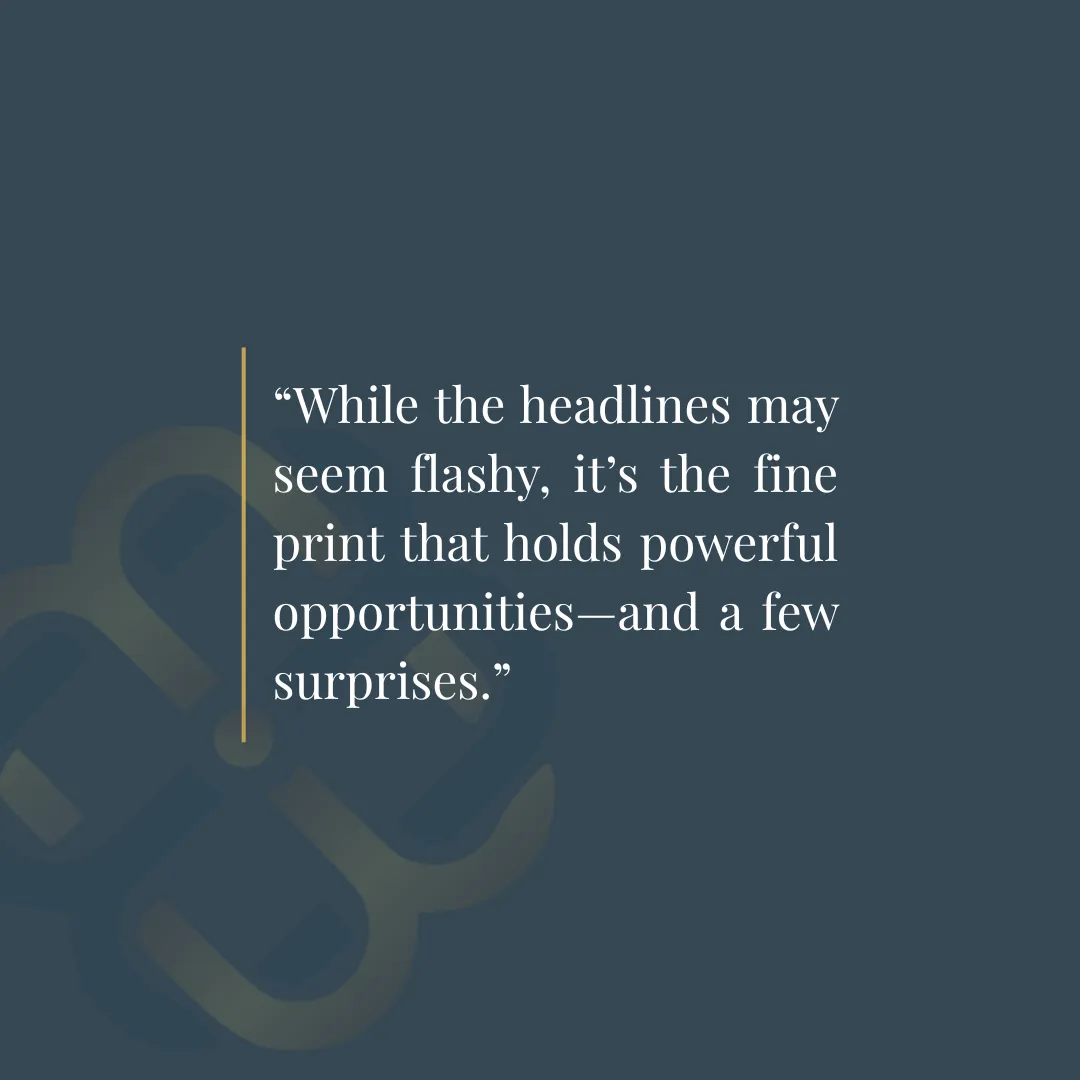
Trump's One Big Beautiful Bill and What it Means for Your Business

The newly passed One Big Beautiful Bill Act (OBBBA) is reshaping the financial landscape for business owners. While the headlines may seem flashy, it’s the fine print that holds powerful opportunities—and a few surprises. At Balanced CFO Services, we’ve broken down what matters most for service-based businesses, especially healthcare and dental practices, so you can proactively plan and protect your profits.
1. A Permanent Boost: 23% Small Business Deduction
Good news for S-Corps and pass-through entities(single member LLCs)—the small business deduction just got a little sweeter.
Example: Dr. Smith, a dentist with $500,000 in taxable profit, now gets a 23% deduction instead of 20%. Old law: $100,000 tax-free New law: $115,000 tax-free Savings: $15,000
That’s more money staying in your practice—and less handed over to the IRS.
2. First-Year Expensing Doubled: Section 179 Upgrade
OBBBA significantly increases first-year expensing limits. Example: Dr. Patel buys a $300,000 CT scanner. Previously, she could deduct up to $1.25M. Now, the limit is $2.5M. This means major equipment upgrades can be fully expensed in year one, rather than depreciated over time. Tax savings: A $2M equipment investment at a 35% tax rate = $700,000 saved instantly.
3. Overtime & Tips = Tax-Free Income
Yes, you read that right. Under the new law, overtime and tip income are tax-exempt for employees. Example: A dental assistant earns $10,000 in overtime—she keeps the full amount. This change helps employee retention and morale, especially in labor-strapped practices.
4. Pass-Through Deduction Without the Red Tape
The 23% deduction used to come with caps and phase-outs for high-income earners. Example: Dr. Lewis’ S-Corp earns $1M in profit. Previously, he risked losing part of the deduction due to income limits. Now, the full $230,000 deduction is protected—no strings attached.
5. QSBS Upgrades = Tax-Free Growth for Investors
If you're investing in other ventures (like healthcare startups), the Qualified Small Business Stock (QSBS) rules just got a makeover. Example: Dr. Kim sells startup shares for a $1M gain. Under the expanded rules, most or all of that gain is tax-free.
6. SALT Workarounds Are Dead
Unfortunately, not all changes are beneficial.
Example: Dr. Jones lives in California and used to deduct all $50,000 in state/local taxes using a pass-through strategy. Under OBBBA, that workaround is now capped at $10,000, meaning higher effective tax bills for those in high-tax states.
7. Medicaid Cuts Create Revenue Challenges
OBBBA tightens Medicaid eligibility, which could impact practices that serve vulnerable populations. Example: Dr. Ramirez sees 200 Medicaid patients annually. With new eligibility checks, 20 lose coverage—meaning lost revenue and scheduling gaps.
8. More Paperwork = More Overhead
Administrative tasks are increasing, especially for practices billing Medicaid. Example: A rural dentist now has to verify patient eligibility every six months instead of annually, adding staff time and complexity.
OBBBA Requires Strategic Action—Not Guesswork There’s real money on the table—but also new risks. Whether you're navigating expensing, employee tax implications, or shifting Medicaid dynamics, Balanced CFO Services is here to help you make informed decisions that protect your profitability.
Don’t let new tax laws catch you off guard. Let’s build a financial strategy that works—no matter what Congress throws your way.
Schedule your CFO session today to explore how these updates apply to your business.

